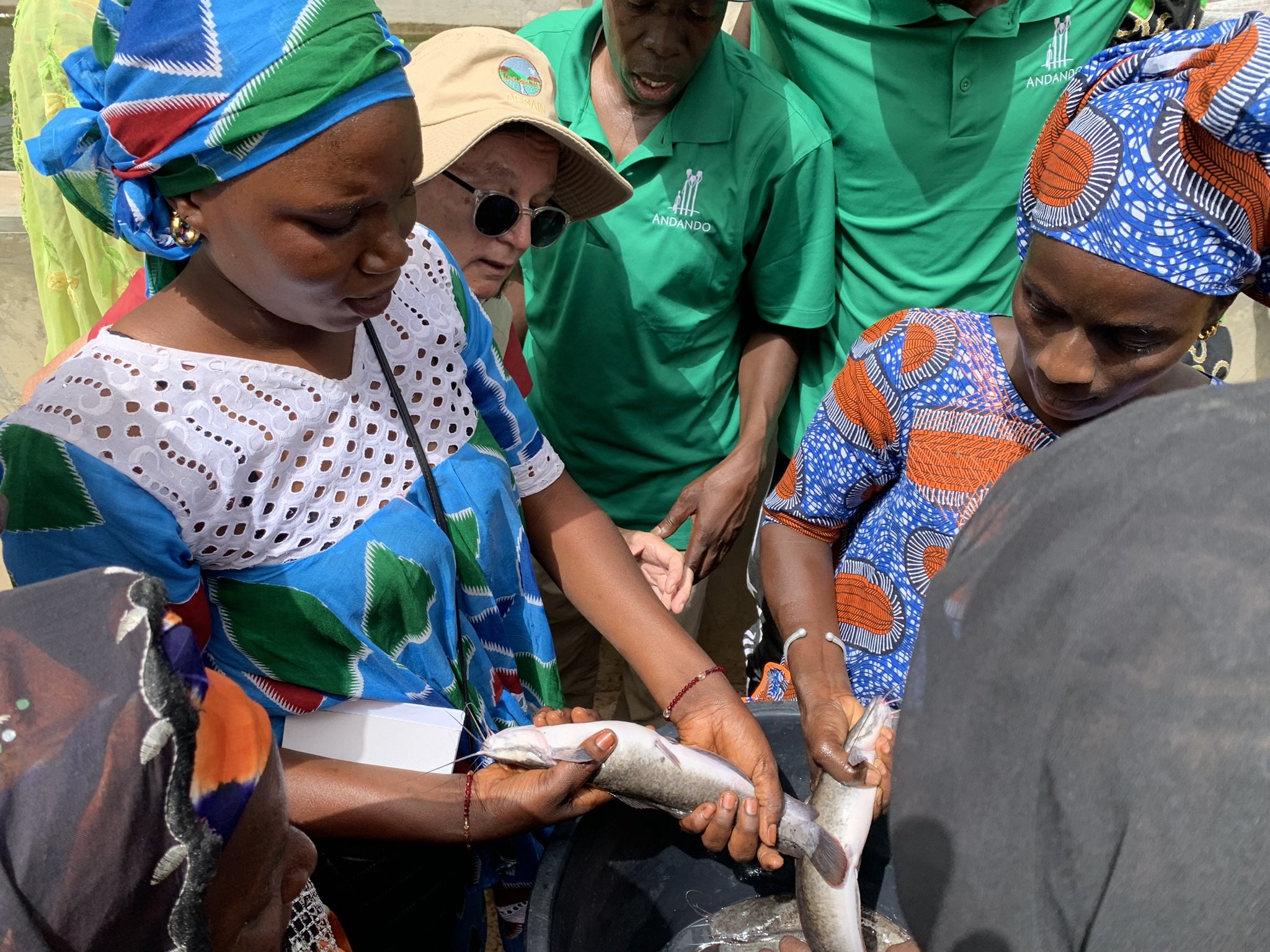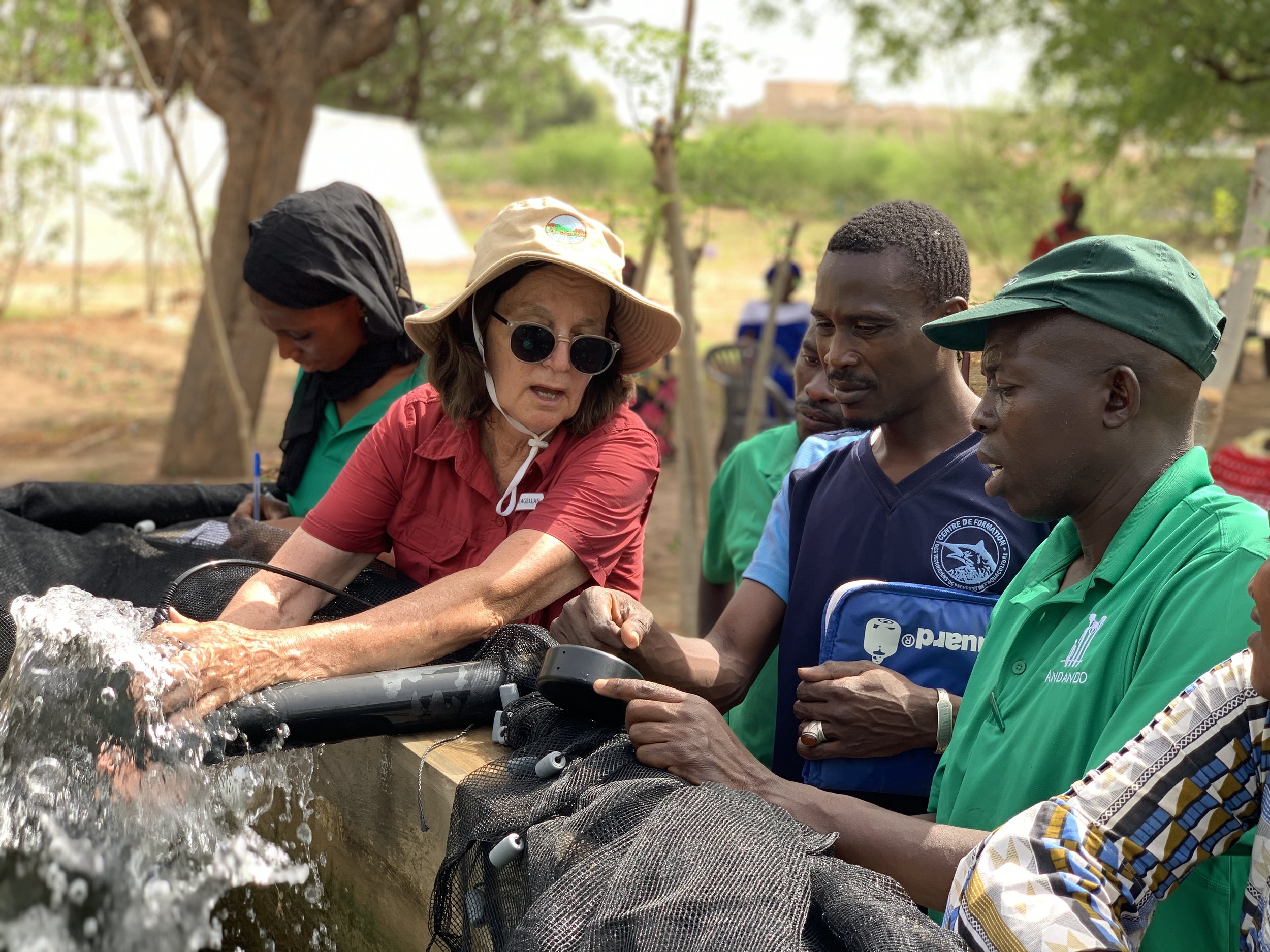A pilot garden member learning to access different markers for fish growth and health.
Overfishing of coastal waters and the Senegal river is leading to a decline in fish populations, making fresh fish rare and expensive in rural inland villages. At the same time, soils in much of Senegal are depleted, forcing farmers to purchase costly fertilizers which further damages watersheds and fish populations. Andando’s Agriculture Program drastically improves food security without using synthetic fertilizers, but our partner gardens still rely on natural amendments to ensure long term soil fertility, which aren’t always available. The nutritional benefits of the gardens, while substantial, also cannot make up for the lack of healthy protein sources for many families. Aquaculture, it turns out, has the potential to help solve all of these issues!
Karen, an Auburn University’s School of Fisheries, Aquaculture, and Aquatic Sciences representative, traveled to Senegal to provide hands-on training for Andando’s staff and pilot aquaculture participants.
Our garden partners started asking for help to raise fish as far back as 2017 but we weren’t exactly sure how to get started. In 2020 Andando connected with Auburn University’s School of Fisheries, Aquaculture, and Aquatic Sciences and together with their expert help and in collaboration with garden leaders we came up with a design to incorporate elevated fish basins into the irrigation systems of the gardens. The pilot project launched in 2022 with two new fish basins in each of four of Andando’s partner gardens in the Keur Soce region. Healthy aquaculture production requires daily water changes, but thanks to our existing solar pump infrastructure we were able to simply add the fish basins in “upstream” so to speak of the watering basins, without increasing water use at all. Water from the fish basins is drained to water crops each day and then is replaced by the solar pump ensuring that crops benefit from added nutrients and the fish get the fresh water they need to stay healthy.
Lamarame Garden members eagerly participating in the first fish harvest!
In a little over a year the project has already proved to be a phenomenal success. All four pilot gardens are now raising multiple profitable harvests of tilapia each year and have even succeeded in establishing local fish breeding so they can continue the project without any outside assistance. In addition to increasing the availability of fresh fish locally, the gardens have also noticed increased vegetable yields and overall garden profits. In fact the gardens participating in the pilot program now generate 38% higher individual profits per member than Andando’s other partner gardens in the Keur Soce area. Their success is very encouraging, and we hope to be able to offer the project to all of our women’s group partners in the future so that they too can gain access to fresh fish while further improving the productivity and profitability of their gardens.







